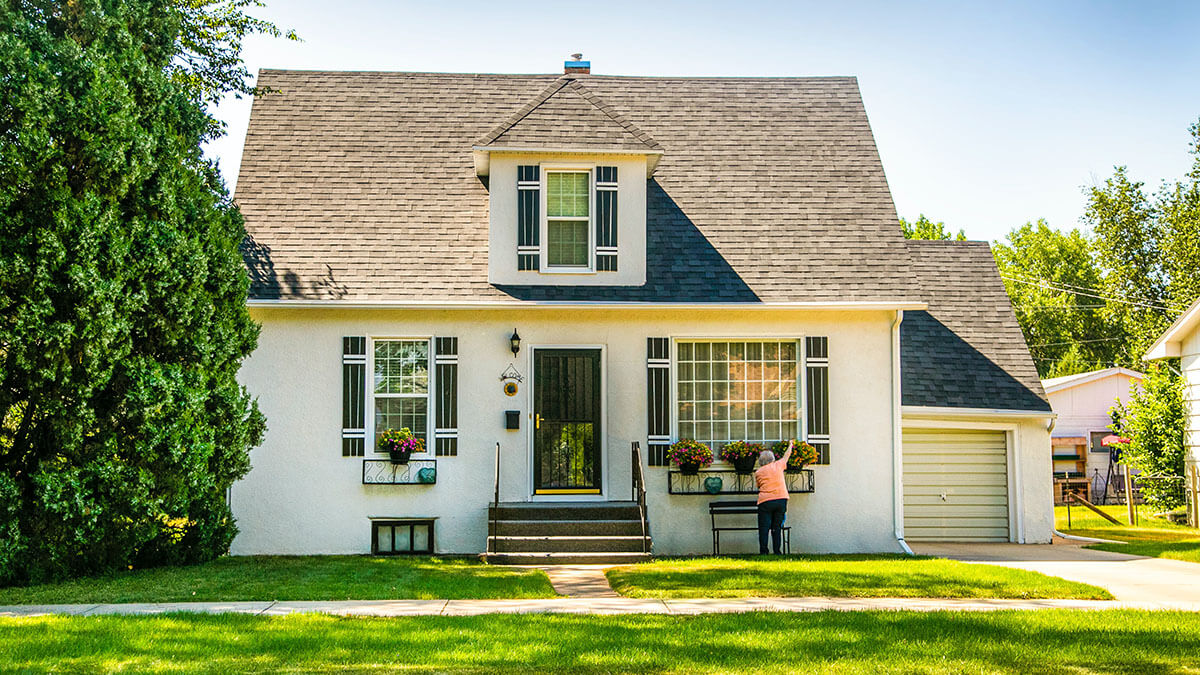Is North Carolina a good place to live? According to the 140,000 people who moved to North Carolina between July 1st, 2022 and July 1st, 2023, the answer is a resounding yes.
According to the US Census Bureau, North Carolina was the third most moved-to state in the US from 2022 to 2023. The only states with more migrants in that period were Texas and Florida.
North Carolina’s beauty, climate, economy, and cost of living are among the top reasons Americans are scrambling to become residents of the Tar Heel State. If you are one of them, this guide is for you.
Today, we want to illuminate the top reasons why moving to North Carolina is a smart move. In the interest of fairness, we’ll also tell you some drawbacks to consider before putting your home on the market.
The Allure of North Carolina
Why are so many people moving from Florida, California, and Texas to North Carolina? It could have something to do with the state’s unique geography, astounding natural beauty, and mild climate.
Few US states can offer the geographical diversity that North Carolina does. Only California can boast the privilege of being home to stunning beaches and mountainous regions.
And while many states offer mild weather without true seasonality, North Carolina is one of the few encompassing two distinct climate regions. This state truly has something for everyone.
Diverse Geography and Scenic Beauty
North Carolina is one of the most beautiful states in the US. A recent study ranked the state ninth in the country for its natural beauty, encompassing mist-shrouded mountains to wide, tranquil beaches.
Geographers divide North Carolina into three distinct regions. There are the flat Coastal Plains and Atlantic beaches to the east and the Blue Ridge and Great Smoky Mountains to the west. Central North Carolina is made up of the Piedmont area, featuring gently rolling foothills and steep, sloping plateaus.
If you love the outdoors, you’ll have no shortage of things to do. The Tar Heel State is home to dozens of state parks, from the oceanside Hammocks Beach State Park to the rugged backcountry of Grandfather Mountain State Park.
You don’t have to live far from the great outdoors if you choose to settle in the city, either. There’s the 1,132-acre McDowell Nature Preserve in Charlotte and Huntersville’s Latta Plantation Nature Preserve, where you can go horseback riding, birdwatching, or fishing at Mountain Island Lake.
The state is also home to many of the best golf courses in the country. The 2024 US Open will be hosted on the renowned Pinehurst No. 2 course in Pinehurst, NC. Other top courses to practice your swing include Wade Hampton in Cashiers, Old Town Club in Winston-Salem, and Eagle Point in Wilmington.
Climate and Weather
North Carolina isn’t just beautiful to look at. It also offers some of the fairest weather in the country, ranking among the top 10 states with comfortable temperatures, clear skies, and sunny days.
Climatologists refer to the area as a humid subtropical climate featuring hot summers and moderate winters. The exact North Carolina weather conditions vary depending on regional elevation.
If you prefer a mild, rainy summer and colder winters, the forested Mountain areas are the place for you. Meanwhile, the state’s subtropical weather can be found in the Piedmont region and is at its best on the sunny Coastal Plains.
Of course, all these benefits don’t come without a few disadvantages. The coastline is home to the state’s most extreme weather: hurricanes. But their effects have also been known to reach all the way to the Appalachian Mountains.
Tornadoes are also somewhat common in North Carolina. While you won’t see nearly as many as in the midwest’s ‘Tornado Alley,’ dozens occur each year, especially in the central Piedmont region.
Economic and Educational Opportunities
Another reason families and young professionals are flocking to the Tar Heel State is its strong and growing economy. Many employers in established and fast-growth industries have presences in North Carolina.
You’ll find ample opportunities in large industries like real estate, health care, education, manufacturing, and business. The state is also becoming a hub for the top-growing industries in the US, such as information technology, financial services, and transportation.
No matter what industry you currently work in or want to pivot to, North Carolina has a job for you. And with so many rigorous higher education institutions, your children will also be set up for future success in this state.
Job Market and Economic Growth
US News and World Report recently ranked North Carolina #7 in the nation for job growth. It also has the 14th-largest economy and ranks in the top 50% for employment of all US states.
The Tar Heel State is a great place to be if you work in information technology, biotech, or pharmaceuticals. Top employers like Merck, Novo Nordisk, Google, and Cisco have a major presence in economic hubs like Charlotte and The Triangle (the name for the Durham-Raleigh-Chapel Hill metroplex).
North Carolina also has some of the nation’s best higher education jobs. Duke University, University of North Carolina at Chapel Hill, and Wake Forest University are only a few of the prestigious colleges in the state.
Other key industries in North Carolina include aerospace and defense, logistics, automotive, financial services, business, energy, food manufacturing, textiles, and tourism.
A little over one in five North Carolina residents holds a Bachelor’s degree, and an even more elite group holds a Graduate or Professional degree. If you’ve attained these educational achievements, you may have a leg up in the job market.
Education System
According to ReportCard on American Education’s most recent rankings, North Carolina’s education system comes in at #13. The state receives high marks for its public school academic standards and quality of teachers.
Chapel Hill is a great city for families with school-aged children. The college town is home to the highly-rated Chapel Hill-Carrboro City School District. Columbus’ Polk County Schools and the Union County Public Schools in Monroe are other top districts to consider.
The Tar Heel State is also home to the #7 college in the nation, Duke University. Though not technically an Ivy League, Duke ranks among other leading institutions like Stanford and MIT.
UNC-Chapel Hill is another prestigious college in the region, consistently ranking alongside the top 25 universities in America. Wake Forest is another top-50 college with one of the best military programs in the country.
There are also 11 historically Black colleges and universities (HBCUs) within the state’s borders. North Carolina A&T State University is the most prestigious, followed by North Carolina Central University in Durham and Winston-Salem State University.
Despite its strong focus on primary, secondary, and higher education, North Carolina still has room to improve. For example, a recent report found that the state has one of the most poorly-funded education systems in the US.
Lifestyle and Culture
Barbeque, beer, baseball, and bluegrass music may be some of North Carolina’s most well-known cultural icons. But there is so much more to love about this state’s deep cultural history.
North Carolina is one of the original 13 colonies, with a rich history spanning back hundreds of years. It was a major producer of tar for the Navy in the 18th and 19th centuries, where the ‘Tar Heel State’ nickname comes from.
Today, locals know North Carolina as a laid-back haven for slow, Southern living and a melting pot of diverse people, cultures, and ideas. So many love calling this state home; we think you will, too.
Cost of Living
North Carolina is the 16th most affordable state in the US in terms of key cost of living factors like living and personal expenses, taxes and income, health, education, loans and credit cards, insurance, telecommunications, and travel.
In 2022, the average North Carolina resident could get by on an annual salary of $38,295. Compare that to the national average, which is nearly $10,000 higher at $47,915.
Living expenses and taxes are where the cost of living in North Carolina really shines. Residents pay a 5.25% flat rate income tax and 4.75% sales tax, both significantly lower than the national average.
The property tax rate is also 0.29% below the national average at only 0.7%. Add that to the fact that the median price of a single-family home is only $369,500, and you’ll understand why North Carolina is one of the most affordable US states for owning property.
Of course, some cities are more affordable than others. Rocky Mount and Fayetteville are reasonably sized cities on the lower end of the cost spectrum. Winston-Salem is the most affordable large city in the state.
On the other end of the spectrum, you have Chapel Hill, the most expensive city to live in North Carolina. Boone, Asheville, and Wilmington are other areas to avoid if you want to keep your annual costs on the lower end.
Cultural Diversity and Community
If you are searching for a diverse state to call home, North Carolina is a top choice. Wallet Hub recently ranked the Tar Heel State #17 in a report of the most diverse US states.
Charlotte is 8th in the nation for socioeconomic, cultural, economic, household, and religious diversity. Raleigh-Durham and Winston-Salem also rank among the top 100 most diverse cities in America.
North Carolina is an attractive state for Black Americans, with nearly 25% of the population falling within this racial group. Recently, the state has seen an influx of residents immigrating from Latin America, Southeast Asia, and India.
The state’s median age is around 38 years, with more younger people concentrated in the state’s thriving college towns and urban centers. North Carolina is also home to the third-largest retirement haven in the US, behind Florida and Arizona.
One of the most unique and lesser-known aspects of the Tar Heel State’s culture is its mix of Northern transplants and Southern charmers. North Carolina is a hot spot for Northerns who once moved to states like Texas or Florida and are now making their way back up north by settling in the midsouth.
Pros and Cons of Living in North Carolina
Moving to a new home is one of those big life decisions we all have to make at some point. Choosing to relocate to a new state is an even bigger decision, requiring more than a few days or even months of thought.
You will have to sell your home (unless you plan to maintain it as an investment property), transfer to a new office or company, and enroll your children in a different school district.
With so many factors to consider, you must consider the pros and cons of moving to North Carolina. We want to help you out with a list of the top advantages and disadvantages of living in the Tar Heel State.
Pros
There’s a lot to love about North Carolina! Here are some of the biggest pros of moving to this Atlantic Coast state:
- Two diverse climate regions
- Three unique geographic areas spanning beautiful beaches and majestic mountains
- Plenty of outdoor activities
- An affordable cost of living
- Lower tax rates
- A growing economy
- Job opportunities in leading industries
- A thriving higher education scene
- A diverse population
- A unique North-meets-South culture
- A large retirement community
- Competitive home prices
- A laid-back lifestyle
- Good food
- A growing art scene
- A relatively low overall crime rate
- Moderate political views
- A strong sports culture
Native and transplant North Carolinians alike also praise the state’s long growing seasons and tree-lined cities, thriving metro areas and quaint small towns, and authentically friendly and respectfully curious people.
Cons
No state is perfect. Though North Carolina comes close, it still has its drawbacks, including:
- Summers can be very hot and humid on the coast
- The potential for hurricanes
- Some smaller towns have disproportionately high crime rates
- Increasing traffic in growing metro areas
- Public transportation systems leave much to be desired
- Healthcare could be more accessible in some rural areas
If you ask a current resident of North Carolina, they might tell you that the worst part about living here is that too many people are moving in! But don’t let that deter you if you’ve decided this state is the right choice for you.
Real Estate and Neighborhoods
North Carolina consistently ranks among the top states for buying real estate, whether you’re in the market for a family home or investment property. That’s because prices are relatively low with the promise of high future values.
One reason why home values are expected to rise in the coming years is that so many people want to move to North Carolina. If you’re among them, act now to take advantage of current savings and future profits.
Real Estate Market Overview
North Carolina is home to a thriving real estate market. A recent report investigated 300 cities’ home prices, sales rates, and affordability. Cary, Durham, Raleigh, and Charlotte all ranked within the top 25.
After a hot few years, the market has started to slow down a bit. But values are still climbing at a faster rate than national averages. That’s good news for potential homebuyers and property investors.
If you want to buy a home in North Carolina, now is the time. Experts are predicting that supply is on the rise, while many homes are selling below listing price, indicating a healthy balance of supply and demand.
Investors should look to buy properties in areas like Chapel Hill, Elizabeth City, and Hickory. These areas are expected to have some of the fastest-growing home sale prices over the next few years.
Be prepared for fierce competition if you want to enter markets like Whispering Pines, River Bend, or Spring Lake. Homeowners are receiving multiple bids for homes, driving up listing prices.
The market is expected to only get more competitive over the next year. Sellers waiting for higher prices and buyers looking for better mortgage rates will flood the market, driving up home values and competition even further.
Popular Neighborhoods in North Carolina
Some of the best places to live in North Carolina include larger cities like Charlotte, Fayetteville, Raleigh, Greensboro, Winston-Salem, and Durham.
If your sights are set on Charlotte, check out Ballantyne West for more affordable homes. Providence Plantation and Dilworth are among the best options for families and young professionals, respectively.
Home to Fort Liberty, Fayetteville is another great place to call home. Anderson Creek is on the affordable end of the spectrum, while Hope Mills is perfect for families and young professionals.
Raleigh is part of The Triangle and one of the fastest-growing cities in the country. Downtown Raleigh is the place to find affordable urban living, while Cameron Village is a hot spot for young professionals. The best Raleigh cities for families include Oakwood, Cameron Park, and Boylan Heights.
Sports and history fans alike will find plenty to do in Greensboro. Look into Greenhaven for more affordable properties. Oak Ridge and Cone Mills are havens for families and young professionals.
The ‘Twin City’ of Winston-Salem is also known as the Gateway to the North Carolina Foothills. Find affordable living in Skyline Columbia Terrace and family-friendly communities in Arcadia. The Innovation Quarter in Downtown Winston-Salem attracts young professionals.
Durham is one-third of The Triangle, along with Raleigh and Chapel Hill. The best neighborhoods in Durham include affordable Duke Park, family-friendly Trinity Park, and Old West Durham for young professionals.
Urban vs. Rural Living
Despite its growing city centers, North Carolina is still considered a rural state. That is quickly changing, with more than 57% of the population living in North Carolina’s most popular urban areas – The Triangle, Charlotte, and Winston-Salem.
The great thing about these cities is that they offer modern amenities like a thriving music and arts scene, plenty of dining options, and public transportation. But with less traffic and a more down-home feel than many major US cities, North Carolina’s urban areas are free from hustle and bustle.
If you prefer rural living, there’s still plenty of that, too. The majority of North Carolina’s counties are unincorporated. Concentrated on the state’s outer edges, small towns like Beaufort, Washington, and Cashiers offer the most beautiful views and the best hospitality in the country.
Healthcare and Accessibility
North Carolina may not be the best state for healthcare access and affordability, but it certainly isn’t the worst. The Commonwealth Fund ranked North Carolina 33rd overall and 40th for access and affordability in its 2023 Scorecard on State Health System Performance.
The good news is that some areas perform better than others. This is especially true as you move away from rural areas. Cities like Raleigh-Durham, Chapel Hill, and Charlotte are home to the best hospitals in North Carolina.
One area where North Carolina shines in terms of healthcare is its health insurance availability. There are a variety of options available at a range of prices, whether residents are looking for private or public policies.
Final Thoughts and Recommendations
North Carolina is an affordable, beautiful place to live, featuring plenty of outdoor activities to keep you busy. It’s also a smart money move, with ample jobs, a growing economy, and valuable real estate.
If you can handle the hot and humid summers, potential for natural disasters, and side effects of living in an urbanizing but still rural state, North Carolina is the place for you.
People relocating from urban areas should avoid smaller towns, as access to healthcare and the down south lifestyle may be jarring. Instead, focus on fast-growth areas like The Triangle and Charlotte for a modern yet laid-back life.
Is North Carolina a Good Place to Live?
If all these reasons aren’t enough to consider North Carolina as your new home already, here’s another one. The Tar Heel State is home to some of the friendliest people you’ll ever meet.
You’ll never feel like a stranger, whether you move to the big city or a small town. So, come find an affordable home in North Carolina, where the weather is fair and the folks even fairer, and stop wondering, ‘Is North Carolina a good place to live?’
Have we convinced you that North Carolina is the place to be? You’ve got to sell your home first, which is where iBuyer.com comes in. We are the best way to sell your home fast and without hassle.
All you have to do is submit your address to find out your home’s value and get a no-obligation cash offer.




